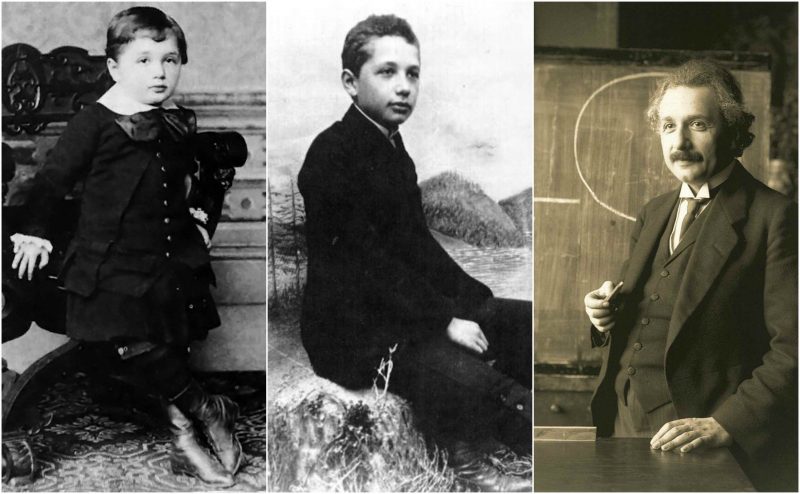Einstein, a name which has undoubtedly become the synonym of genius turned the classical physical model of the world on its head and made Newton turned in his grave all through early 20th century. Born in Ulm, Germany in 1879 Einstein revolutionized the physical perspective of time and space much like Darwin in Biological realm, but on an epic scale or to put it more precisely, the cosmic scale. Conceivably one of the most brilliant and towering mind that shaped our modern understanding of the universe, Einstein had his fair share of bumpy rides and misconceptions associated with him. Following are some of the interesting facts that you may not be aware of.
Einstein was Great at Maths in his Childhood
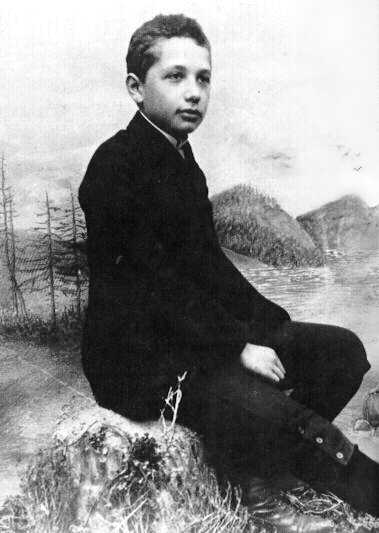
One of the myths that surround the funny haired genius is related to his mathematical achievements during his childhood years. Some people believe that despite his genius outbursts of comic proportions in his twenties and subsequent years, Einstein had it pretty rough in his early years with Mathematics. They propose that Einstein not only failed incessantly, he struggled to grapple the very basic mathematical concepts.
This is however, many light years away from the truth, since Einstein was factually known as one of the brightest among his peers while growing up. When asked the question during an interview, Einstein refuted the myth and told the reporter that before he had reached his 15th Birthday he had already mastered differential and integral calculus. So next time if an underachieved kid announces his shared property with Einstein, give them a book of differential calculus to prove their lineage with Einstein.
Einstein had a daughter that no one knows anything about
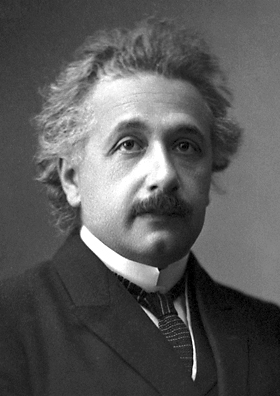
The knowledge about Einstein’s first born did not surface until a group of researchers went through some of the old personal notes of the genius physicist. After denouncing his German citizenship in 1896, Einstein decided to enrol at Swiss Federal Polytechnic School in Zurich where he started a romantic affair with a Serbian student. Mileva Maric was also a physicist-in-training at the School; Einstein married her later and had two sons. However Mileva gave birth to their daughter a year before they tied the knot, and kept it a secret from their family and even close friends. Lieserl, Einstein’s first daughter, some scholars believe died in 1903 from Scarlet fever. Others believe she was given up for adoption when Maric took her to Serbia.
It took Einstein almost a decade to get a job in academia
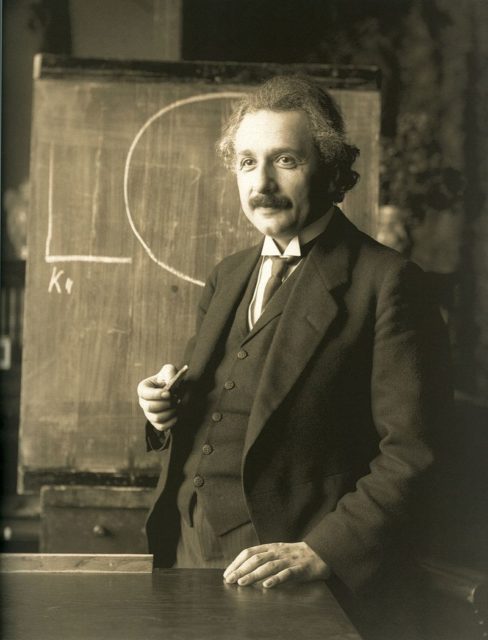
Einstein’s brilliance was a very peculiar affair, and him being a ‘hard nut to crack’ sort of a person made things even more complicated for his teachers to correctly assess his talents. Einstein terribly failed to gain the trust of his professors during his academic years, which consequently meant less futile recommendations after he graduated at the turn of the 20th century. Determined about his abilities, Einstein spent two years trying to prove his worth to a number of institutions but failed to leave a mark.
In 1903 he settled for a humbling role in Swiss patent office in Bern. This could have been the end of anyone aspiring to be a physicist, but not for Einstein who turned this seemingly lowest point in his life into perhaps the most productive years of his careers. The job at the patent office meant Einstein had much more time at hand to polish his ideas and theories and to analyze them from all possible angles. Then came the famously known ‘miracle year’ of 1905 when Einstein published four papers introducing his brain child E=mc2 along with a detailed outlook of the theory of general relativity. It took Einstein another four years to land a proper professorship, almost a decade after he graduated from the Polytechnic School.
Einstein promised his Noble Prize money to his wife as divorce settlement
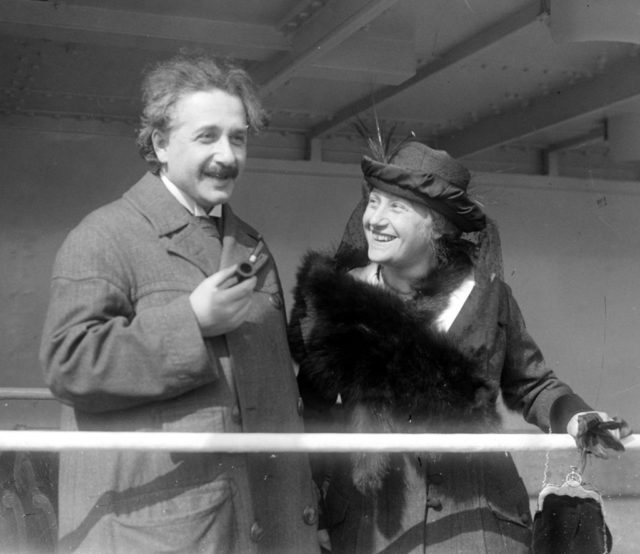
After having a romantic start, Einstein’s marriage hit the rocks and had practically collapsed by the time 1910 arrived. Scholars believe that Einstein’s eccentric nature and focus on his researches was partly responsible for the rift between him and Mileva.
During the years of separation Einstein began receiving letters from his cousin Elsa, which slowly turned into a romantic relationship. In 1919 when Einstein and Mileva agreed to officially end the marriage, Einstein promised Mileva an annual stipend along with a significant share in his Noble Prize money, to which she agreed. Einstein eventually won the much deserved and long awaited Noble Prize in 1922 for his works on the photoelectric effect. By then Einstein had already remarried to his cousin Elsa who remained by his side until her death in 1936.
Einstein refused to be the President of Israel
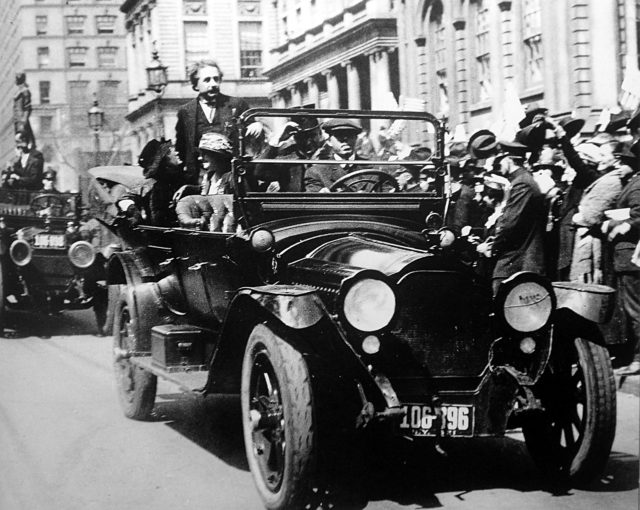
Despite the fact that Einstein beliefs about the mainstream religions were very evident and documented to be somewhat heretic, he felt a deep connection with his Jewish heritage and values passed down to him by his parents. Einstein will seize every opportunity to speak out audibly against the growing anti Semitism in Europe before and during the Nazis swept through the continent. Einstein, though never openly criticized the Zionist movement, was never a great admirer of the Zionist cause.
In 1952 when the first head of the state of Israel died, the Israeli government offered Albert Einstein to become Israel’s second president. Einstein, who was 73 at the time, promptly turned down the offer with a very humble and objective reasoning. In the letter that he wrote to Israeli government refusing the offer, Einstein cited his inability to govern since he thought of himself simply as an academic and did not see himself as someone who could lead a nation.
